Truthdigger of the Week: Ben Bradlee
David Remnick recalled that the man who directed The Washington Post's reporting on Watergate and the Pentagon Papers "wasn’t Noam Chomsky He was not an outsider or a leftist" But "he built an institution He gave it its ambition".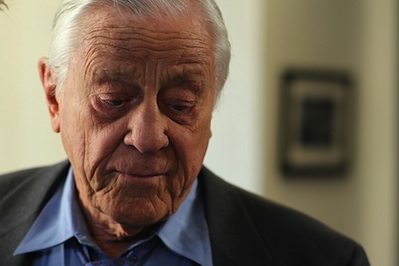 Former Washington Post Editor Ben Bradlee. Photo by Miguel Ariel Contreras Drake-McLaughlin (CC BY-SA 2.0)
Former Washington Post Editor Ben Bradlee. Photo by Miguel Ariel Contreras Drake-McLaughlin (CC BY-SA 2.0)
Every week the Truthdig editorial staff selects a Truthdigger of the Week, a group or person worthy of recognition for speaking truth to power, breaking the story or blowing the whistle. It is not a lifetime achievement award. Rather, we’re looking for newsmakers whose actions in a given week are worth celebrating.
The man who directed the press investigation that felled President Richard Nixon and who braved the litigious waters where the Vietnam War eventually sunk died Oct. 21 at age 93.
Benjamin Bradlee — editor-in-chief of The Washington Post for over two decades, during which time the newspaper won 17 Pulitzer Prizes and nearly doubled its circulation — has received high praise in obituaries in newspapers and across the Web for his leadership during those events in the early 1970s. In the first instance, the scandal that became known as Watergate, Bradlee supported two young city reporters in their suspicion that the White House was behind a break-in at the Democratic Party headquarters. In the second, the Pentagon Papers case, he defied the federal government’s attempt to intimidate journalists into abandoning reporting on a series of documents leaked by defense whistle-blower Daniel Ellsberg that revealed members of the Johnson administration lied to the public and to Congress about their prosecution of the Vietnam War.
Editor-in-Chief of The Guardian Alan Rusbridger wrote last week in his tribute to Bradlee that the paper’s performance under Bradlee’s leadership cemented public perception of a newspaper’s duty. “That so-rare combination — brilliant owner, editor and reporters,” Rusbridger said, “produced journalism that changed American history and inspired generations of journalists to believe in their craft as something that could be aggressively and honourably pursued in the public interest.”
Bradlee’s standards for himself and his staff were simple. When lawyers advised caution after the Nixon administration filed an injunction against The New York Times for publishing the Pentagon Papers, Bradlee refused to be muzzled, even though the paper was about to go public with a $35 million stock offering. “That’s what newspapers do,” he wrote later, as Rusbridger recalled. “They learn, they report, they verify, they write and they publish.” The Supreme Court agreed. Since then, Rusbridger said, “No American government since has dared to threaten … any news organisation” with the same legal argument.
In a joint statement, the two reporters on the Watergate case, Bob Woodward and Carl Bernstein, remembered their former boss with even greater reverence and conviction.
“Ben was a true friend and genius leader in journalism,” they wrote. “He had the courage of an army. Ben had an intuitive understanding of the history of our profession, its formative impact on him and all of us. But he was utterly liberated from that. He was an original who charted his own course. We loved him deeply, and he will never be forgotten or replaced in our lives.”
Other comments from journalists working conspicuously from the left of the political spectrum demonstrate the respect Bradlee garnered not for his politics but for his skill as a newsman. “He built an institution,” wrote editor of The New Yorker David Remnick. “That paper wasn’t any good before he got there. It wasn’t even the best paper in Washington. It became the second best paper in the country. He gave it its ambition.”
That is high praise to a man whose career before journalism, The Guardian wrote, included work as a “counter-espionage informant, a government propagandist, and unofficial asset of the Central Intelligence Agency.”
Remnick continued: “Bradlee wasn’t Noam Chomsky. He was not an outsider or a leftist. He was a cold war Democrat who probably voted for some Republicans. It helped that he had the good fortune that in a room full of schlubs he looked like a grandee. He was funny and flashy, but not a stuffed shirt.”
Bradlee’s apparent kindness, decency and understanding — uncommon traits in a field that is notoriously hardhearted — were perhaps best represented in a story published at The Intercept by former Washington Post writer Peter Maass. As a young freelancer, Maass tried to fib his way into a domestic job he didn’t want but thought would eventually enable him to land him the work he did want: a contract as a foreign reporter covering the end of communism in Eastern Europe. Bradlee sniffed out Maass’ lie, and after regaling the confused reporter with stories of his exploits overseas, sent him directly to Budapest.
Maass’ tribute elevates his former boss to a kind of savior status: “Instead of a local school board I got Eastern Europe and the dreadful thing that reporters of a young age wish for, a war to cover; mine would be in the Balkans. I have no idea what I would have become, or who I would have been, if Bradlee had done as most editors would have done, listening to my polite lies and shuffling me along toward a by-the-numbers career that would kill my soul.”
Other remembrances noted a dark spot on Bradlee’s career — the revelation in 1991 that one of his reporters had fabricated a Pulitzer Prize-winning story about an 8-year-old heroin addict in a black neighborhood. Bradlee regretted that he and his staff had not been more vigilant in confirming the sources. He admitted that his failure reflected his staff’s limited familiarity with the black community of Washington, D.C. But Maass’ article cited the event as proof the editor was willing to call “bullshit on himself.” Remnick admired Bradlee’s conduct. “Sometimes it’s how someone acts in his or her worst moments that is the measure of that person,” he wrote.
Other remembrances noted the many recognitions Bradlee received from universities and various organizations throughout the latter part of his life. One came from the French government for being “one of those who stood up to denounce French-bashing” at “the height of the controversy over Iraq.” Few of his eulogizers, however, seem to have noted the irony in the editor’s receipt of the Presidential Medial of Freedom from Barack Obama in 2013. The president who seeks to punish whistle-blowers and reporters who publish damning leaks documenting government wrongdoing — and whom New York Times reporter James Risen (who is being prosecuted by the Justice Department for refusing to reveal a CIA source) called “hypocritical” for his statements of support for press freedom and the “greatest enemy of press freedom in a generation” — awarded Bradlee the medal in 2013 because the editor had “successfully challenged the Federal Government over the right to publish the Pentagon Papers.”
Regardless of who gave out the award, however, a review of Bradlee’s life and career makes it clear that he deserved it. Truthdig Editor-in-Chief Robert Scheer said the editor “was gutsy without putting on airs, a truly redeeming quality for someone who did his job so excellently.” Many journalists from younger generations are only now learning of his example. We at Truthdig hope it remains for many generations to come. Ben Bradlee is our Truthdigger of the Week.
Remember This:
Your support matters…Independent journalism is under threat and overshadowed by heavily funded mainstream media.
You can help level the playing field. Become a member.
Your tax-deductible contribution keeps us digging beneath the headlines to give you thought-provoking, investigative reporting and analysis that unearths what's really happening- without compromise.
Give today to support our courageous, independent journalists.
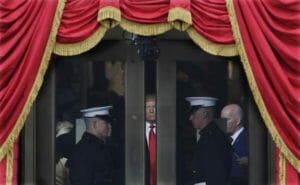
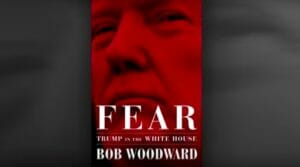
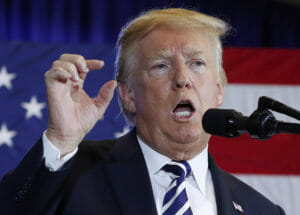
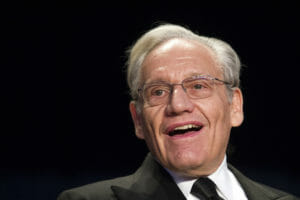

You need to be a supporter to comment.
There are currently no responses to this article.
Be the first to respond.